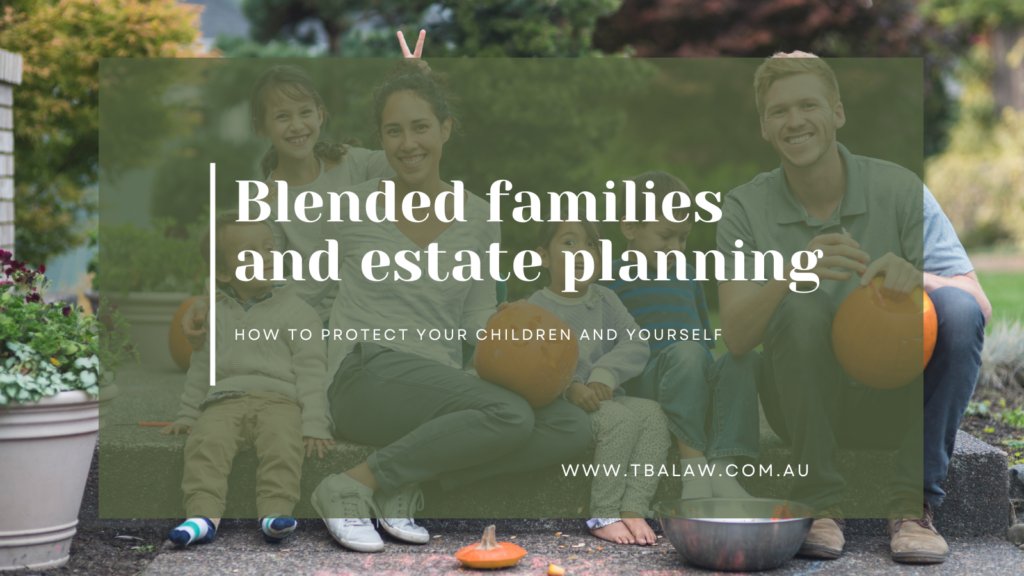Estate Planning For Blended Families
If your family includes children from multiple relationships, you absolutely require specialized estate planning.
A blended family is a family in which different types of relationships are blended together. There are many different scenarios that can lead to a blended family, such as: a younger family coming together, with one or both partners having had previous children and they come together and have some more kids; or it could be an older couple who decided to get together later in life and one partner doesn’t have their own kids. The main thing with a blended family is to weigh up the obligations to the relationships that you have in your life, because people do think about this differently, and that’s fine.

So, for example, the law requires that your obligation to a spouse be your primary relationship. The law doesn’t specify what should be provided for children, but if you are married, you must leave your spouse with accommodation they don’t have to pay for and a nest egg. That being said, it also depends on how long your second relationship is. If you have been together for about five years and have recently married, you should probably provide for children from previous relationships as well as your spouse. But if it’s a second marriage of 10 or 15 or 20 years, then you’d probably want to leave everything to your spouse and wait until both of you pass away before providing for children from previous relationships.
It’s important to weigh the obligations that you have and how you want to manage them, understanding that you have a stronger obligation to your spouse than to your children. However, if you are worried that there might be some trouble between your children and your spouse, it might make things hard on them and they might expect something from the estate when you pass away. First of all, you could manage that expectation by having a conversation with them or just by being close enough with them. If not, then structuring your estate to protect it from a claim could be a good idea. That’s what we go through in our estate planning process so there are certain assets that do not fall under the estate under your will particularly joint assets so constructing your estate so you’ve got a lot of joint assets with your spouse will make sure those assets go to your spouse without the chance of having a contest.
Another option you may want to consider is whether you can satisfy your children’s needs with non-estate assets or assets in a different form. For example, maybe you have a life insurance policy that was created directly for them so they actually get something. It’s not much but it’s a token at that point. You could do the same thing with superannuation although there are tax implications with that which we would explore with you. So I guess a few options there to think about how to do it.
Another thing to think about when dealing with blended families is that you need to reduce an estate and manage the other expectations after you both pass away. For example, if you have children on both sides of the family and how you’re going to split up your estate after your death. Or if you have children together and then children from previous marriages as well, whether you treat them differently or not. Another balancing act is how you’re going to treat your children who have another parent as well.
We can use estate planning tools like education trusts to help the youngest children reach adulthood without draining their share of the estate. We can also devise other types of trusts to help set things up in a variety of ways. For example, we can give our children from this relationship half of their inheritance, while children from previous relationships receive 25% each. We can tailor the percentages however we want or need to best protect our family and plan for the future.
I hope I’ve given you some ideas to think about for blended families. It’s not the hardest thing in the world, but it does take work and effort. You’ll have to sort through your feelings and decide how you want things to go, but at least having a plan can give you a sense of stability.
Get in touch with our team so we can help you get started with a specialised estate plan! Call 1300 043 103 or email admin@tbalaw.com.au






Leave A Comment